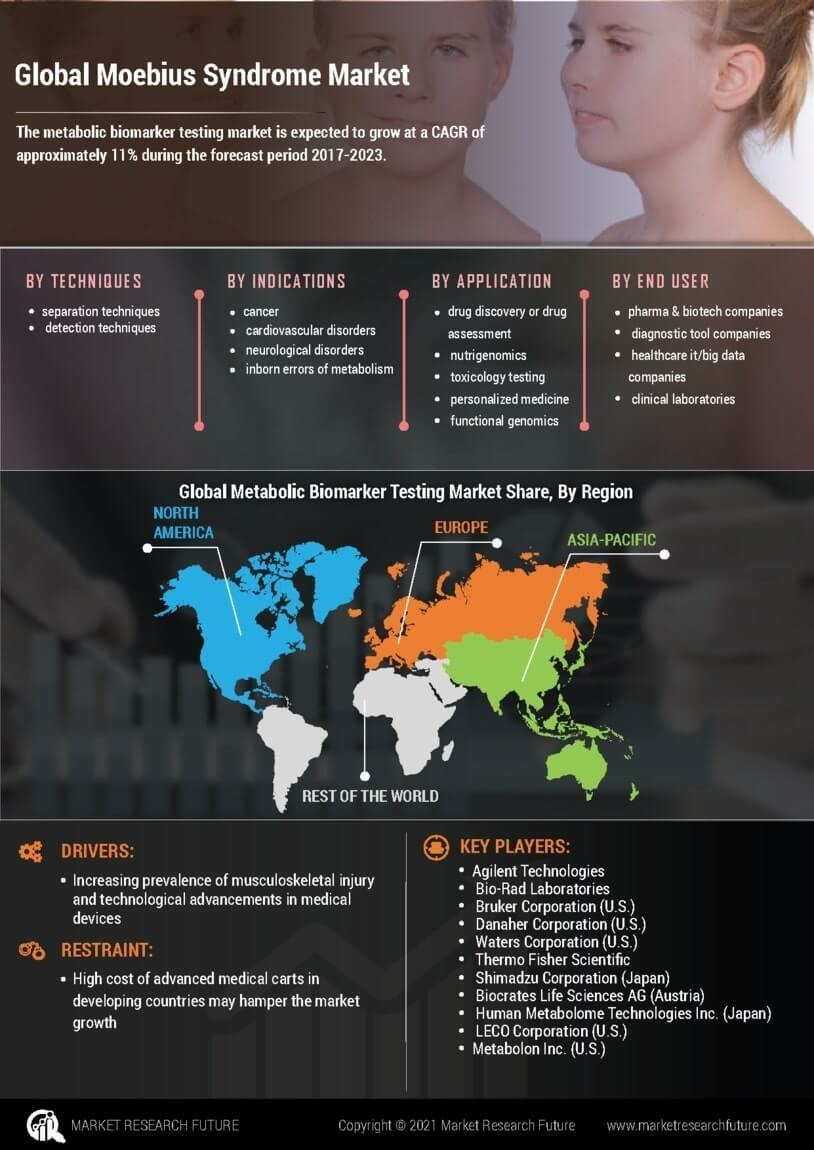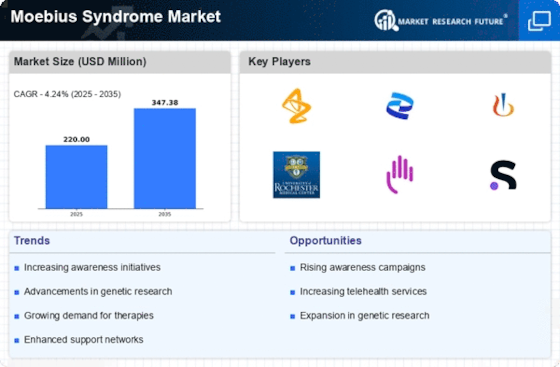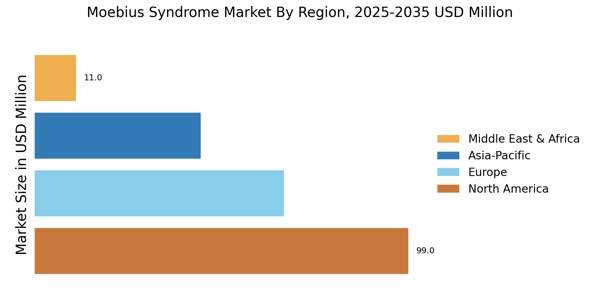Innovative Research and Development
The Moebius Syndrome Market is significantly influenced by ongoing research and development initiatives aimed at understanding the underlying mechanisms of the syndrome. Recent advancements in genetic research have provided insights into the etiology of Moebius Syndrome Market, which may lead to the development of targeted therapies. Pharmaceutical companies and research institutions are increasingly investing in innovative treatment modalities, including gene therapy and regenerative medicine. This focus on R&D is expected to enhance the therapeutic landscape for individuals affected by Moebius Syndrome Market, potentially leading to improved quality of life and better management of symptoms. As new treatments emerge, the Moebius Syndrome Market is likely to experience growth driven by the introduction of novel therapeutic options.
Rising Incidence of Moebius Syndrome
The Moebius Syndrome Market is witnessing a notable increase in the reported incidence of the condition. Recent studies indicate that the prevalence of Moebius Syndrome Market may be higher than previously estimated, with some estimates suggesting it affects approximately 1 in 50,000 live births. This rising incidence is likely to drive demand for diagnostic services and treatment options, thereby expanding the Moebius Syndrome Market. As awareness grows among healthcare professionals and the general public, more cases are being identified, which could lead to an increase in the number of patients seeking medical intervention. Consequently, this trend may stimulate research and development efforts aimed at improving therapeutic strategies and enhancing patient outcomes.
Increased Funding for Rare Disease Research
The Moebius Syndrome Market is benefiting from a surge in funding dedicated to rare disease research. Governments and non-profit organizations are recognizing the need for more resources to support the development of treatments for conditions like Moebius Syndrome Market. This influx of funding is facilitating clinical trials and research projects that aim to uncover new therapeutic approaches. As a result, the Moebius Syndrome Market is poised for growth, as increased financial support may lead to the discovery of effective treatments and improved patient care. Furthermore, this funding is likely to foster collaboration between academic institutions and industry stakeholders, enhancing the overall research ecosystem surrounding Moebius Syndrome Market.
Technological Advancements in Diagnostic Tools
The Moebius Syndrome Market is being transformed by technological advancements in diagnostic tools and methodologies. Innovations such as advanced imaging techniques and genetic testing are enhancing the accuracy and speed of diagnosis for Moebius Syndrome Market. These developments are crucial, as early diagnosis can lead to timely interventions and better management of the condition. The increasing availability of sophisticated diagnostic tools is likely to drive growth in the Moebius Syndrome Market, as healthcare providers are better equipped to identify and treat patients. Furthermore, as technology continues to evolve, it may pave the way for more personalized treatment approaches, ultimately improving patient outcomes.
Growing Patient Advocacy and Awareness Campaigns
The Moebius Syndrome Market is experiencing a positive impact from the rise of patient advocacy groups and awareness campaigns. These organizations play a crucial role in educating the public and healthcare professionals about Moebius Syndrome Market, thereby increasing recognition and understanding of the condition. As awareness grows, more individuals are likely to seek diagnosis and treatment, which could lead to an expansion of the Moebius Syndrome Market. Advocacy efforts are also instrumental in pushing for policy changes that support research funding and access to care for affected individuals. This grassroots movement is essential for fostering a supportive environment for patients and their families, ultimately contributing to the growth of the market.


















